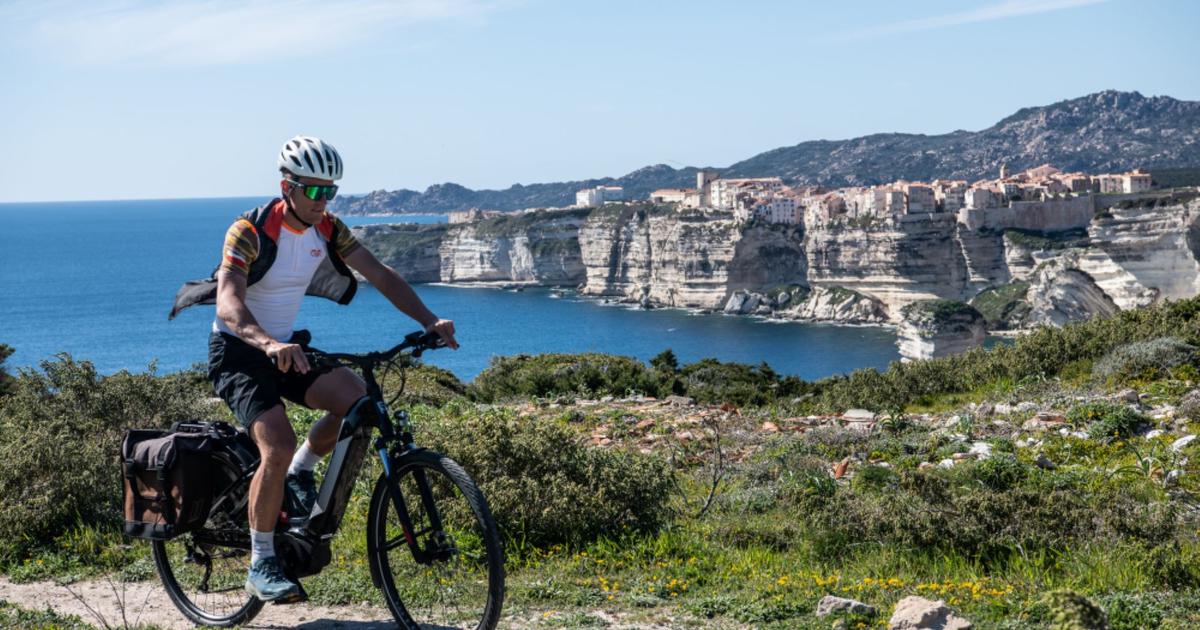Richard Carapaz, before starting the fifth stage of the Volta. PAU BARRENA (AFP)
Wearing glasses and the team's tracksuit, Richard Carapaz (Tulcán, Ecuador; 29 years old) settles on the sofa and asks for a bottle of water to hydrate, since a couple of hours ago he suffered the devastating ascent to Lo Port.
He speaks slowly and in a hiss, although he occasionally accompanies the words with a mischievous smile, a characteristic of his personality and cycling.
Leader of Education First, he sees the Volta as something more than training for his great goal, the Tour de France.
Ask.
He left Ineos this summer to sign for EF with the idea of going for the Tour.
Do you keep it?
Answer
.
I signed because we had many things in common and the fact of sharing objectives attracted me.
They said they wanted to win the Tour... well, I want to too, you know?
That brought us together.
Looking for such a big and ambitious thing, strengthens.
Q.
Does ambition define you?
R.
Ambition has made Richard Carapaz.
In Ecuador there was no tradition, hardly any means, and being ambitious has led me to Olympic gold, to win a great tour [the 2019 Giro], to be on other podiums [second in the 2022 Giro and the 2020 Tour, and third in the 2021 Tour]…
Q.
It happens that now there is a group of riders who win everything like Pogaçar, Vingegaard, Roglic, Evenepoel…
R.
I have been with them on podiums, I know the quality they have.
I can't miss anyone.
They are great runners, but I also know that I can be there.
We are all ambitious and I hope to be in the fight again.
Q.
If something characterizes you, is it that you always put up a fight?
R.
It is in my blood and I usually take advantage of it.
I am brave, fighter.
I think many cyclists enjoy suffering on the bike.
We are a bit of a masochist.
That's the word.
Q.
Perhaps that character also comes from your childhood, since you took charge of your parents' farm when your mother fell ill with breast cancer.
Is it so?
R.
Yes. What I experienced in adolescence has influenced my character.
And I have known how to take advantage of it because I had a very important life lesson.
I didn't choose it, but I appreciate it because on the bike it has served me a lot.
Q.
Has cycling given you the life you dreamed of?
R.
Where I came from I didn't have high expectations either.
But I do the work that I like and they pay me.
I am very lucky.
Q.
Were you always clear that you wanted to be a cyclist?
R.
Yes. There came a time when my father asked me what I preferred, whether to study or the bike.
I told him that he wanted to try it and that if at 23 I hadn't achieved anything important, he would devote me to studying.
But inside I thought I wanted to be a cyclist.
I threw myself one hundred percent into this and he has brought me here.
Q.
He was also an Olympic champion in 2021… But in his celebration he reproached Ecuador for never helping him.
In what sense?
R.
When I started I had no financial means.
They had a talent and as a country they did not bet on me.
I didn't ask to be paid, but I did ask to take me to a Pan American, to a Bolivarian... They didn't support me with the bike, or with the clothes or with the races.
That is my complaint.
I couldn't expect anything from people, but now in Ecuador cycling is in fashion and my name is very important.
They applaud me and I appreciate it very much.
I hope it continues to grow.
Q.
Cycling is increasingly global and competitive, right?
R.
Over time everything is more professionalized and measured.
This year, for example, the level is much higher than other seasons.
You have to be precise, move at the exact moment.
Q.
You usually show that you are wrong on the rise and then attack.
Do you like to play that?
R.
Well, the years of experience take you to know the race situations and you learn when it is good to attack.
It is mischief and instinct, but also experiences because the races are repetitive.
And that learning, knowing when and where to move, can make a difference.
Q.
Young people arrive prepared and hungry.
Are they irreverent?
R.
Everyone has their school.
Mine is from the years of yesteryear, when you saw
Bala
[Valverde] and you stepped aside.
Now it is different.
But young people are doing important things and everyone deserves respect.
Q.
Has this evolution made you change your routines?
R.
I have always had a way of preparing myself.
Yes, there have been changes to improve, such as the gym, but the essential thing is to enjoy the bike.
That is what brings you the most.
You can follow EL PAÍS Deportes on
and
, or sign up here to receive
our weekly newsletter
.
Subscribe to continue reading
Read without limits
Keep reading
I'm already a subscriber

/cloudfront-eu-central-1.images.arcpublishing.com/prisa/6M23R3EI573M2AF3UZAUUEIEKA.jpg)







